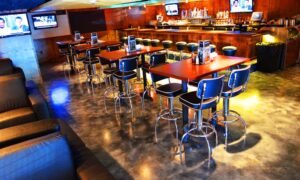Introduction:
Air conditioning has become an indispensable part of modern living, providing comfort and relief from sweltering heat. However, along with the luxury of cool, conditioned air comes the responsibility of managing its costs. Understanding the factors influencing air conditioning costs is essential for homeowners and businesses alike to make informed decisions regarding installation, maintenance, and usage. In this article, we’ll delve into the various aspects of air conditioning costs, offering insights into efficiency measures, maintenance practices, and cost-saving strategies.
Factors Affecting Air Conditioning Costs:
Type of System:
- The type of air conditioning system you choose significantly impacts the initial installation costs as well as long-term operational expenses. Options range from traditional central air systems to ductless mini-split systems and portable units. Each has its upfront costs, maintenance requirements, and energy efficiency levels. Evaluating your specific needs, space constraints, and budget is crucial in selecting the most suitable system.
Size and Capacity:
- Proper sizing of the air conditioning system is essential for efficient operation and cost management. An oversized unit may lead to short cycling, increased energy consumption, and inconsistent cooling, while an undersized unit might struggle to meet the desired temperature demands, resulting in excessive wear and tear. Conducting a load calculation with the help of a professional ensures that you invest in an appropriately sized system tailored to your space.
Energy Efficiency:
- Energy-efficient air conditioning systems not only reduce utility bills but also minimize environmental impact. Look for units with high Seasonal Energy Efficiency Ratio (SEER) ratings, indicating superior energy efficiency. Additionally, consider features such as programmable thermostats, variable-speed compressors, and energy-saving modes to optimize energy usage and lower operational costs over time.
Installation Costs:
- Proper installation is critical for maximizing the performance and longevity of your air conditioning system. Hiring a reputable HVAC contractor ensures that the installation is done correctly, minimizing the risk of inefficiencies, breakdowns, and premature replacements. While professional installation may entail higher upfront costs, it pays off in terms of reliability, energy savings, and overall comfort.
Maintenance and Repairs:
- Neglecting routine maintenance can lead to decreased efficiency, system malfunctions, and costly repairs. Regularly servicing your air conditioning system, including cleaning or replacing filters, checking refrigerant levels, and inspecting components, helps maintain optimal performance and extends the lifespan of the equipment. Additionally, addressing minor issues promptly can prevent them from escalating into major, expensive repairs down the line.
Cost-Saving Strategies:
Optimize Usage Patterns:
- Adjusting your usage patterns can significantly impact your air conditioning costs. Utilize programmable thermostats to regulate temperatures based on occupancy and time of day, reducing energy consumption during periods of lesser demand. Additionally, take advantage of natural ventilation and shading to minimize reliance on air conditioning, especially during mild weather conditions.
Improve Insulation and Sealing:
- Proper insulation and sealing of your home or building envelope prevent conditioned air from escaping and outdoor air from infiltrating, thereby reducing the workload on your air conditioning system. Seal gaps and cracks around doors, windows, and ductwork, and consider upgrading insulation in attics, walls, and floors to enhance energy efficiency and comfort.
Invest in Smart Technologies:
- Smart HVAC technologies offer advanced features for optimizing energy usage and comfort. From Wi-Fi-enabled thermostats that allow remote temperature control to zoning systems that customize heating and cooling based on specific areas, these innovations empower users to manage their air conditioning systems more efficiently, leading to potential cost savings.
Conclusion:
Understanding the costs associated with air conditioning involves considering various factors, including system type, size, efficiency, installation, maintenance, and usage patterns. By investing in energy-efficient equipment, practicing regular maintenance, and implementing cost-saving strategies, homeowners and businesses can effectively manage their air conditioning expenses while enjoying enhanced comfort and sustainability. Ultimately, informed decision-making and proactive measures are key to achieving optimal performance and cost-effectiveness in air conditioning systems.



































